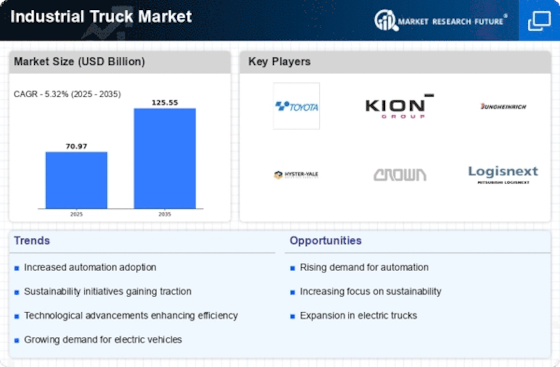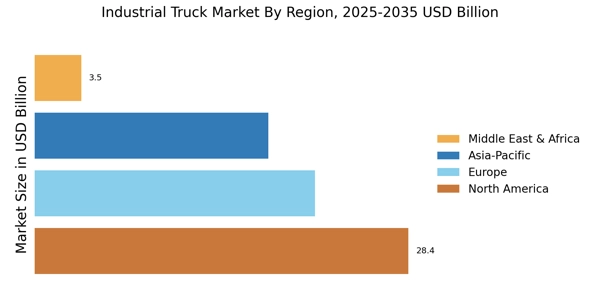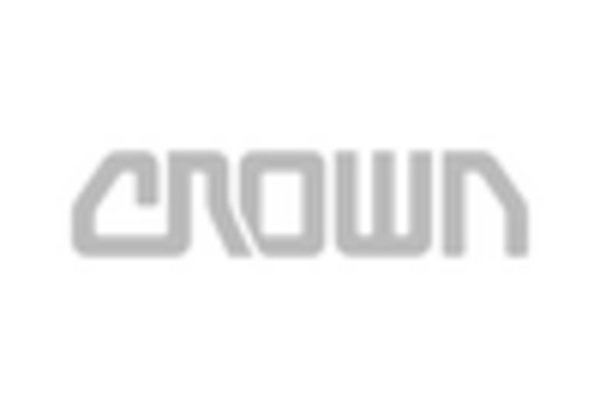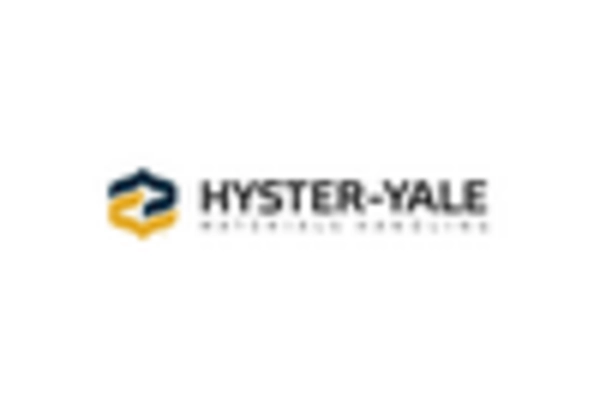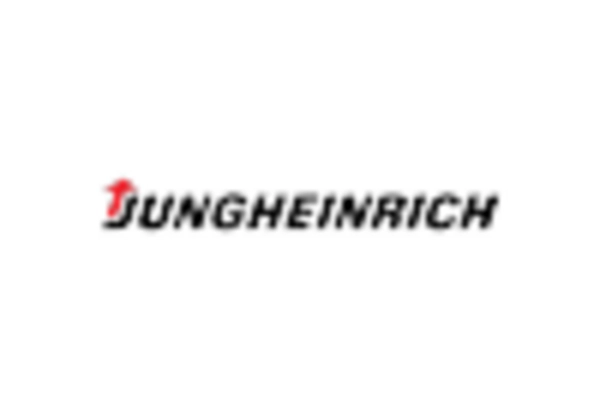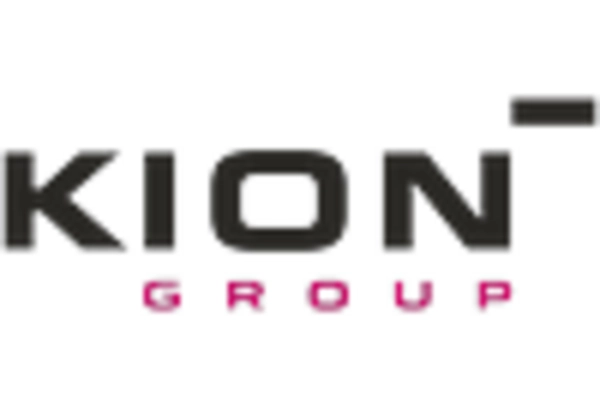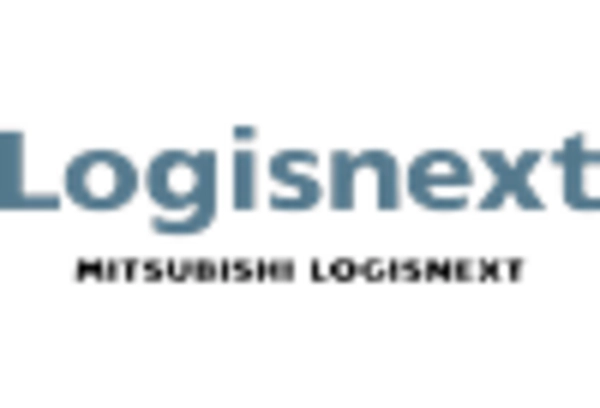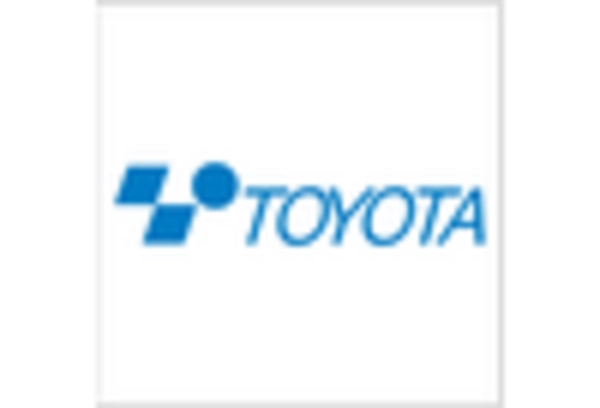Labor Shortages
Labor shortages in various industries are prompting companies to seek automation solutions, thereby influencing the Industrial Truck Market. With a declining workforce in sectors such as manufacturing and logistics, businesses are turning to industrial trucks to compensate for the lack of available labor. In 2025, the need for efficient material handling equipment is expected to grow as companies strive to maintain productivity levels. This shift towards automation indicates that the Industrial Truck Market may see an uptick in demand for advanced technologies, such as automated guided vehicles and robotic forklifts, which can operate with minimal human intervention.
E-commerce Growth
The rise of e-commerce has led to an increased demand for efficient logistics and warehousing solutions, thereby driving the Industrial Truck Market. As online shopping continues to expand, companies require advanced material handling equipment to manage inventory and fulfill orders swiftly. In 2025, the e-commerce sector is projected to account for a substantial portion of retail sales, necessitating the adoption of industrial trucks for streamlined operations. This trend indicates that businesses are investing in automated solutions, including forklifts and pallet jacks, to enhance productivity. Consequently, the Industrial Truck Market is likely to experience robust growth as companies seek to optimize their supply chains and improve delivery times.
Safety Regulations
The implementation of stringent safety regulations is driving innovation within the Industrial Truck Market. As companies prioritize workplace safety, there is a growing demand for industrial trucks equipped with advanced safety features. In 2025, regulatory bodies are likely to enforce stricter guidelines regarding the operation of material handling equipment, compelling manufacturers to enhance their product offerings. This trend suggests that the Industrial Truck Market will experience growth as businesses invest in safer, more reliable equipment to comply with regulations and protect their workforce. Enhanced safety features not only reduce accidents but also improve operational efficiency, making them a priority for companies.
Infrastructure Development
Infrastructure development plays a crucial role in shaping the Industrial Truck Market. As nations invest in transportation networks, warehouses, and distribution centers, the demand for industrial trucks is expected to rise. In 2025, significant investments in infrastructure projects are anticipated, particularly in emerging markets, which will likely create opportunities for industrial truck manufacturers. The construction and logistics sectors are particularly reliant on industrial trucks for material handling and transportation. This trend suggests that as infrastructure projects progress, the Industrial Truck Market will benefit from increased orders and sales, further solidifying its position in the market.
Sustainability Initiatives
Sustainability initiatives are increasingly influencing the Industrial Truck Market as companies seek to reduce their environmental impact. In 2025, there is a growing emphasis on eco-friendly practices, prompting manufacturers to develop electric and hybrid industrial trucks. This shift towards sustainable solutions is likely to attract environmentally conscious businesses looking to enhance their green credentials. The demand for energy-efficient equipment is expected to rise, as companies recognize the long-term cost savings associated with reduced fuel consumption. Consequently, the Industrial Truck Market may witness a transformation as it adapts to meet the needs of a more sustainable future.


